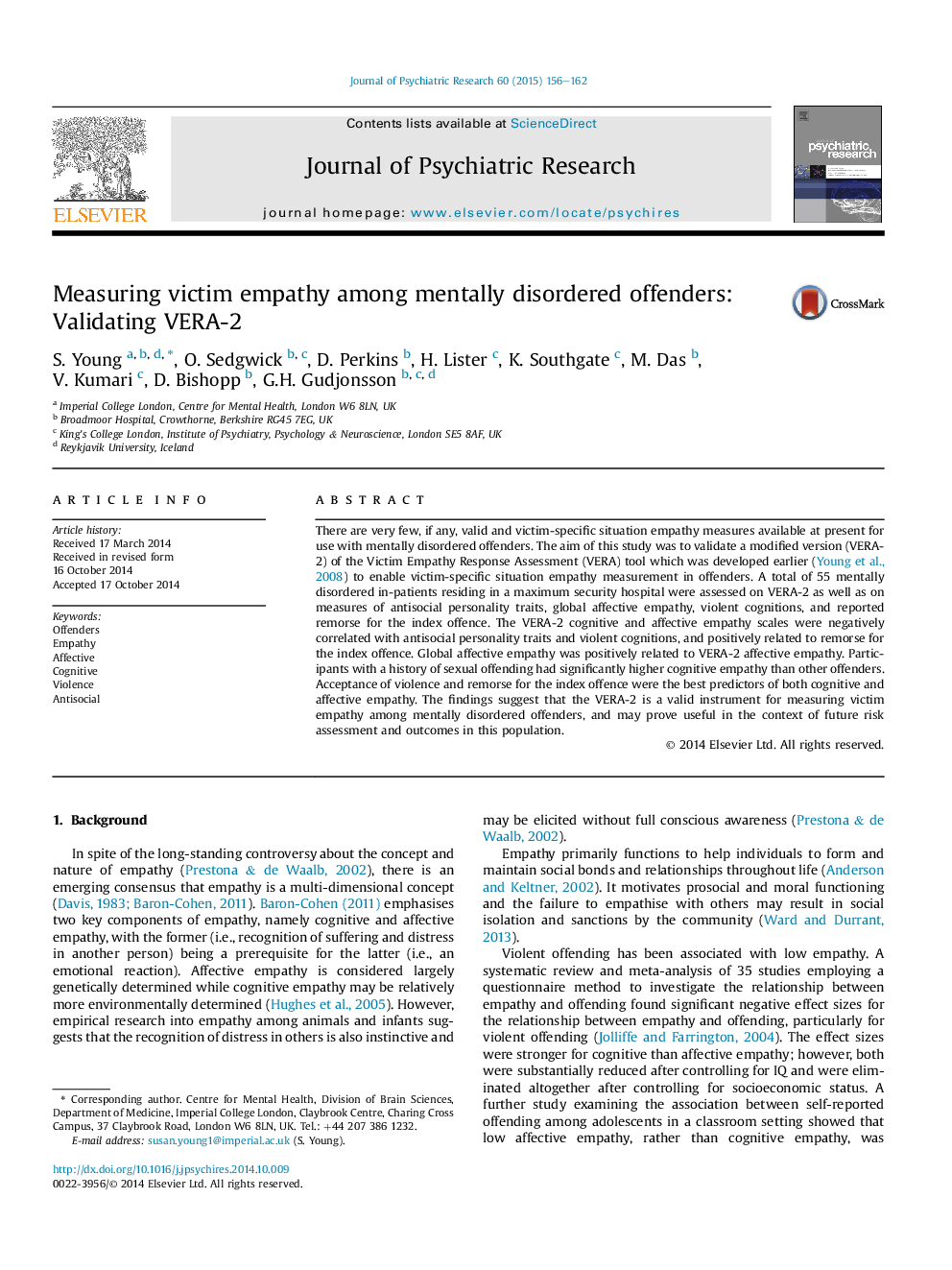| کد مقاله | کد نشریه | سال انتشار | مقاله انگلیسی | نسخه تمام متن |
|---|---|---|---|---|
| 327317 | 542838 | 2015 | 7 صفحه PDF | دانلود رایگان |

• Empathy correlated negatively with antisocial personality and violent cognitions.
• Empathy correlated positively with remorse for the index offence.
• Global affective empathy was related to VERA-2 affective empathy.
• Sex offenders had significantly higher cognitive empathy than other offenders.
• Acceptance of violence and remorse predicted cognitive and affective empathy.
There are very few, if any, valid and victim-specific situation empathy measures available at present for use with mentally disordered offenders. The aim of this study was to validate a modified version (VERA-2) of the Victim Empathy Response Assessment (VERA) tool which was developed earlier (Young et al., 2008) to enable victim-specific situation empathy measurement in offenders. A total of 55 mentally disordered in-patients residing in a maximum security hospital were assessed on VERA-2 as well as on measures of antisocial personality traits, global affective empathy, violent cognitions, and reported remorse for the index offence. The VERA-2 cognitive and affective empathy scales were negatively correlated with antisocial personality traits and violent cognitions, and positively related to remorse for the index offence. Global affective empathy was positively related to VERA-2 affective empathy. Participants with a history of sexual offending had significantly higher cognitive empathy than other offenders. Acceptance of violence and remorse for the index offence were the best predictors of both cognitive and affective empathy. The findings suggest that the VERA-2 is a valid instrument for measuring victim empathy among mentally disordered offenders, and may prove useful in the context of future risk assessment and outcomes in this population.
Journal: Journal of Psychiatric Research - Volume 60, January 2015, Pages 156–162